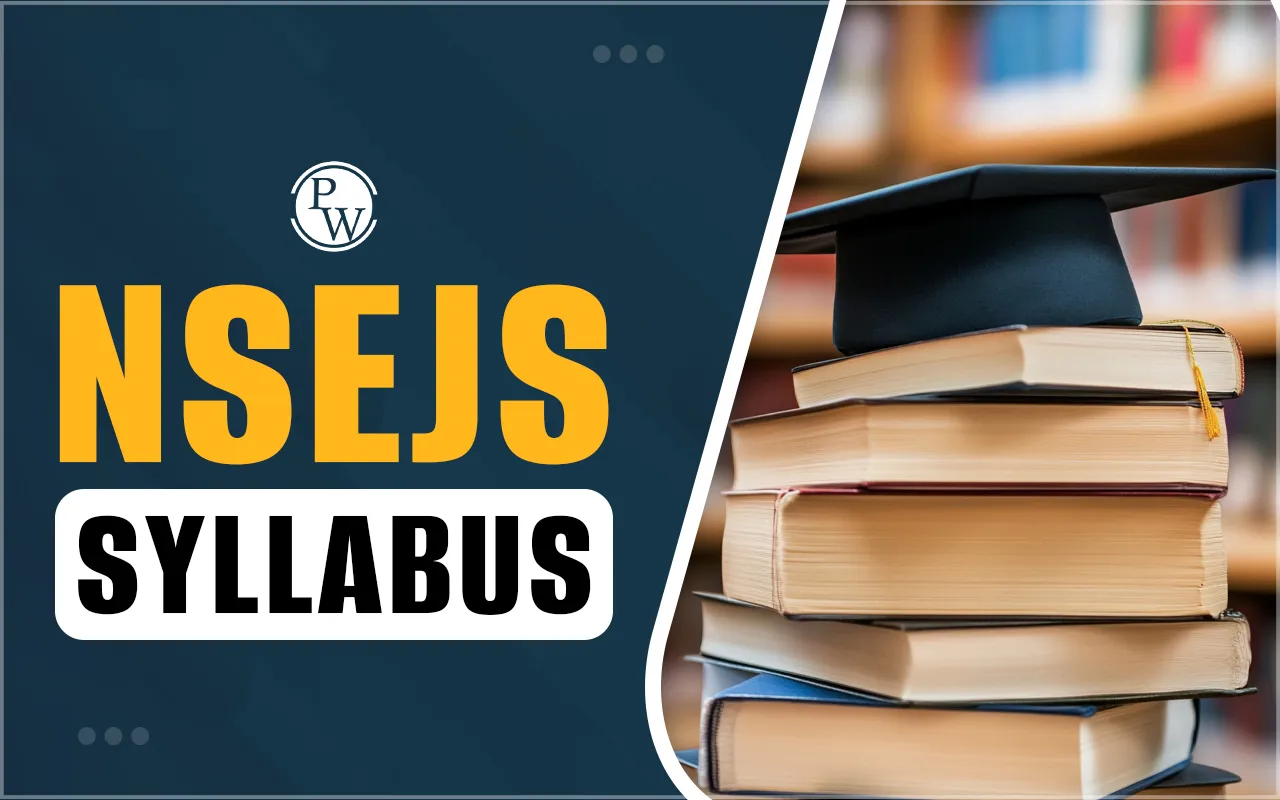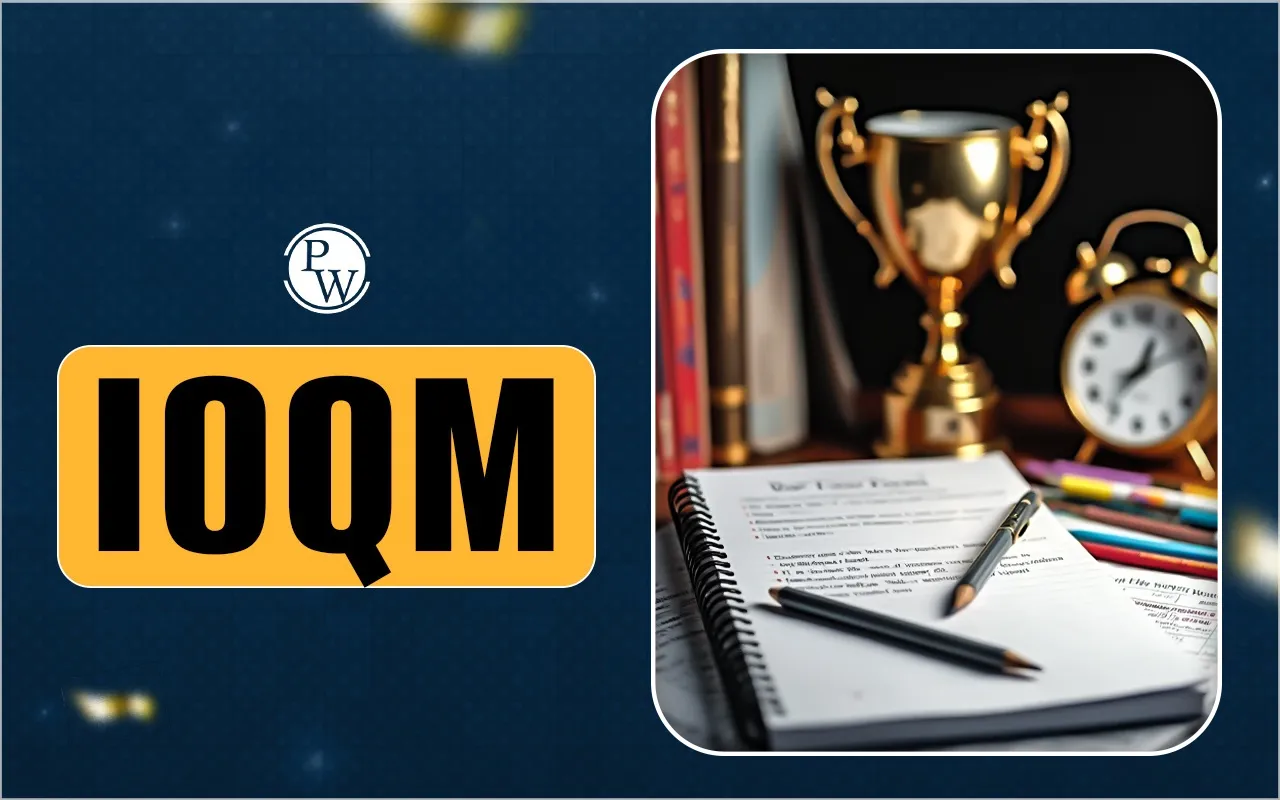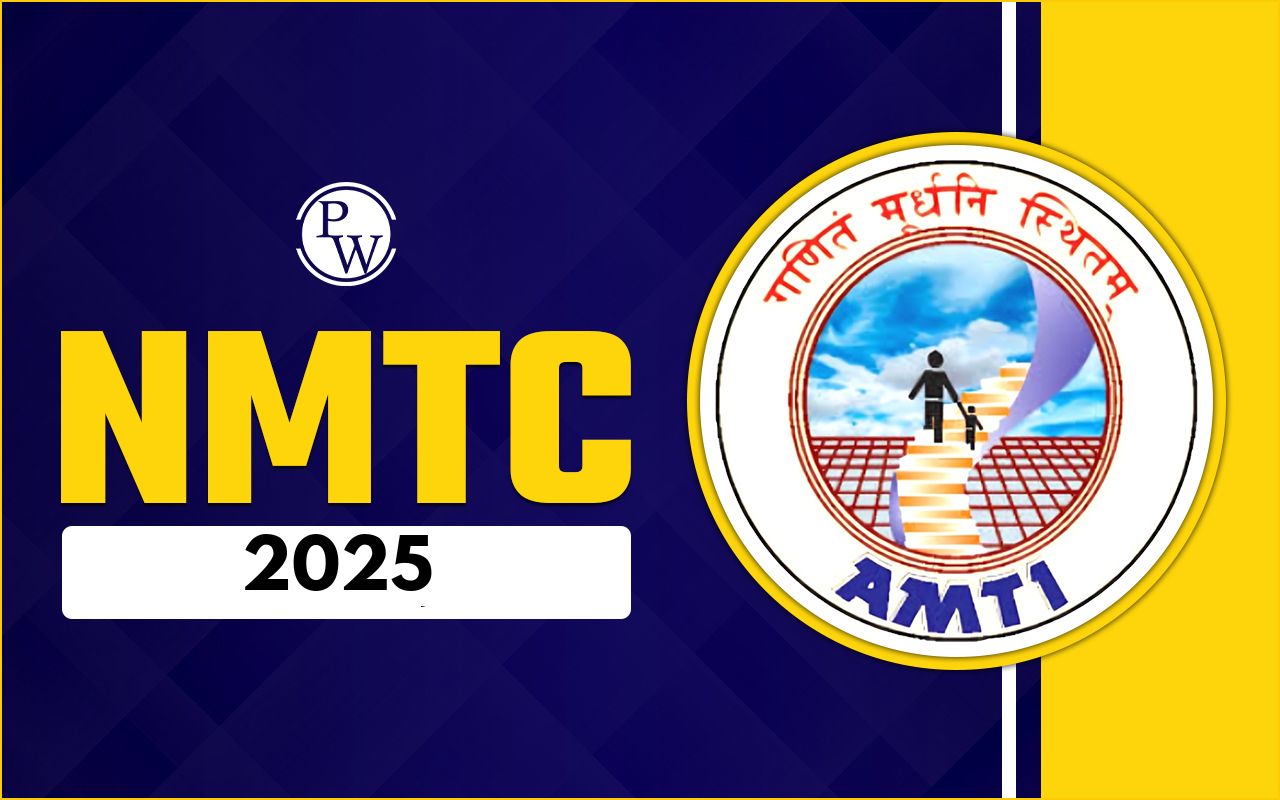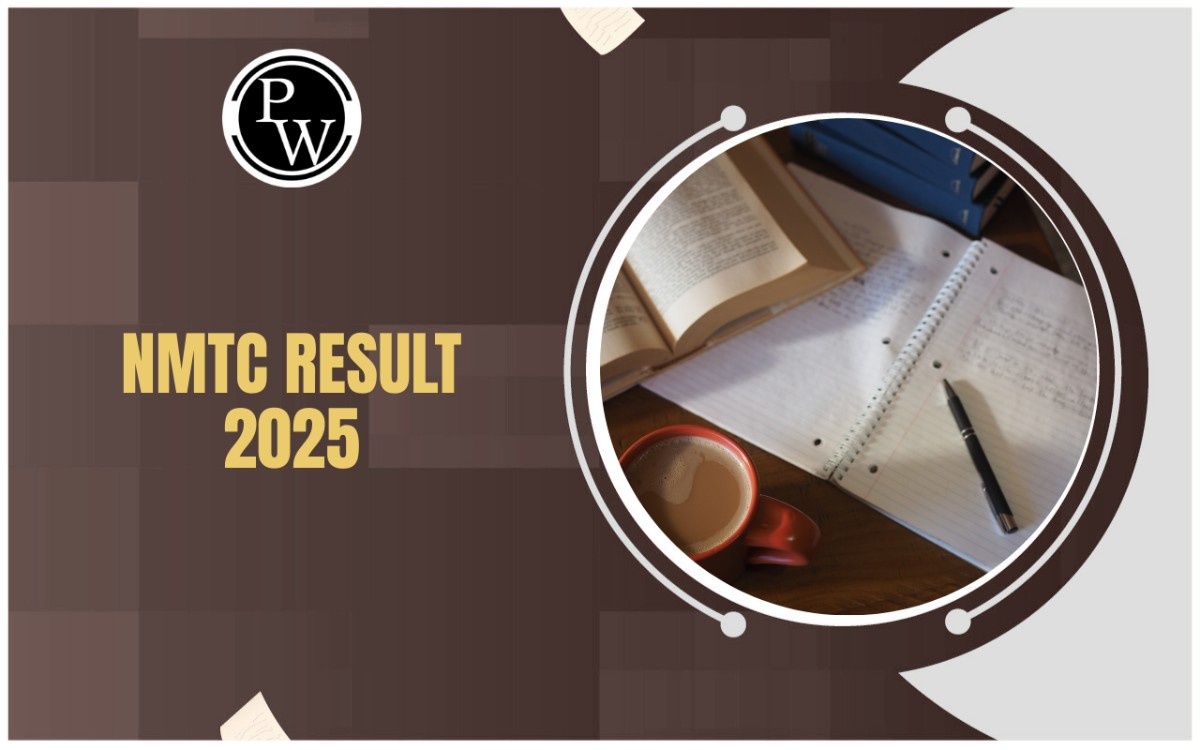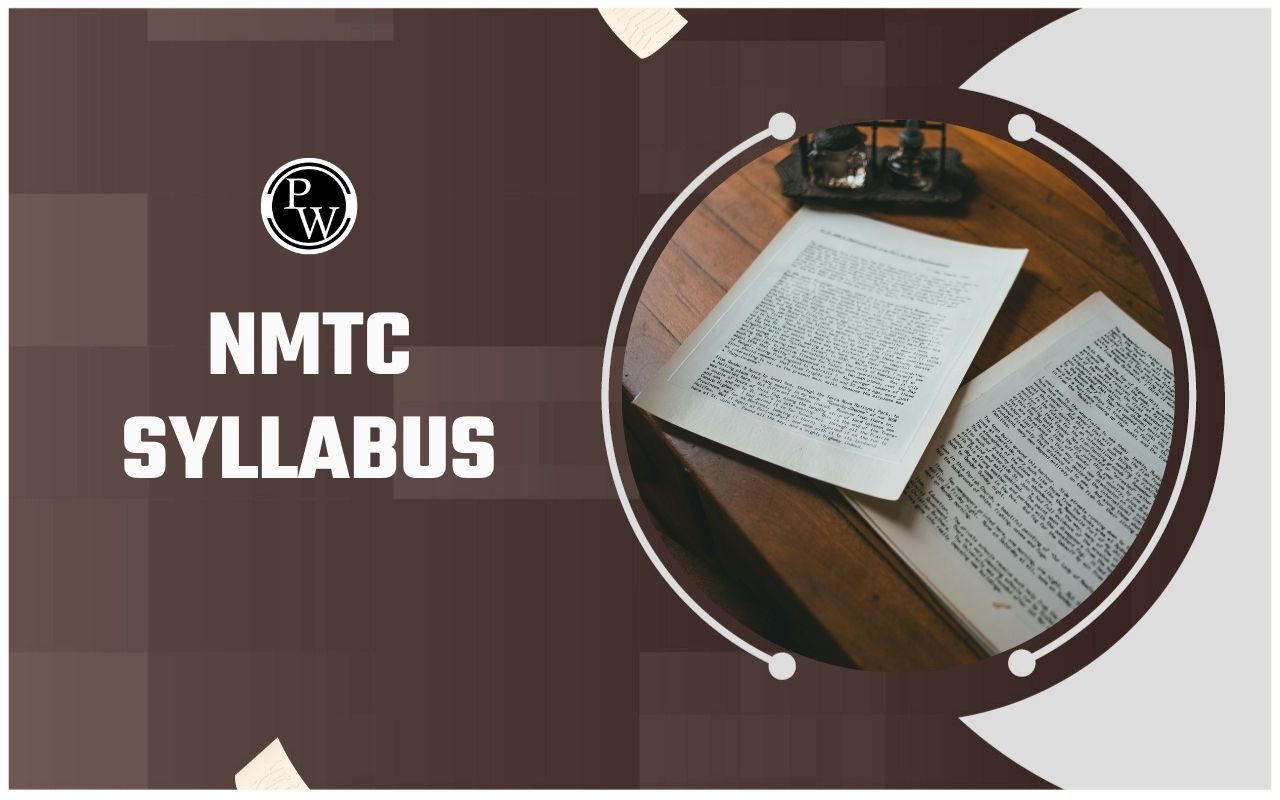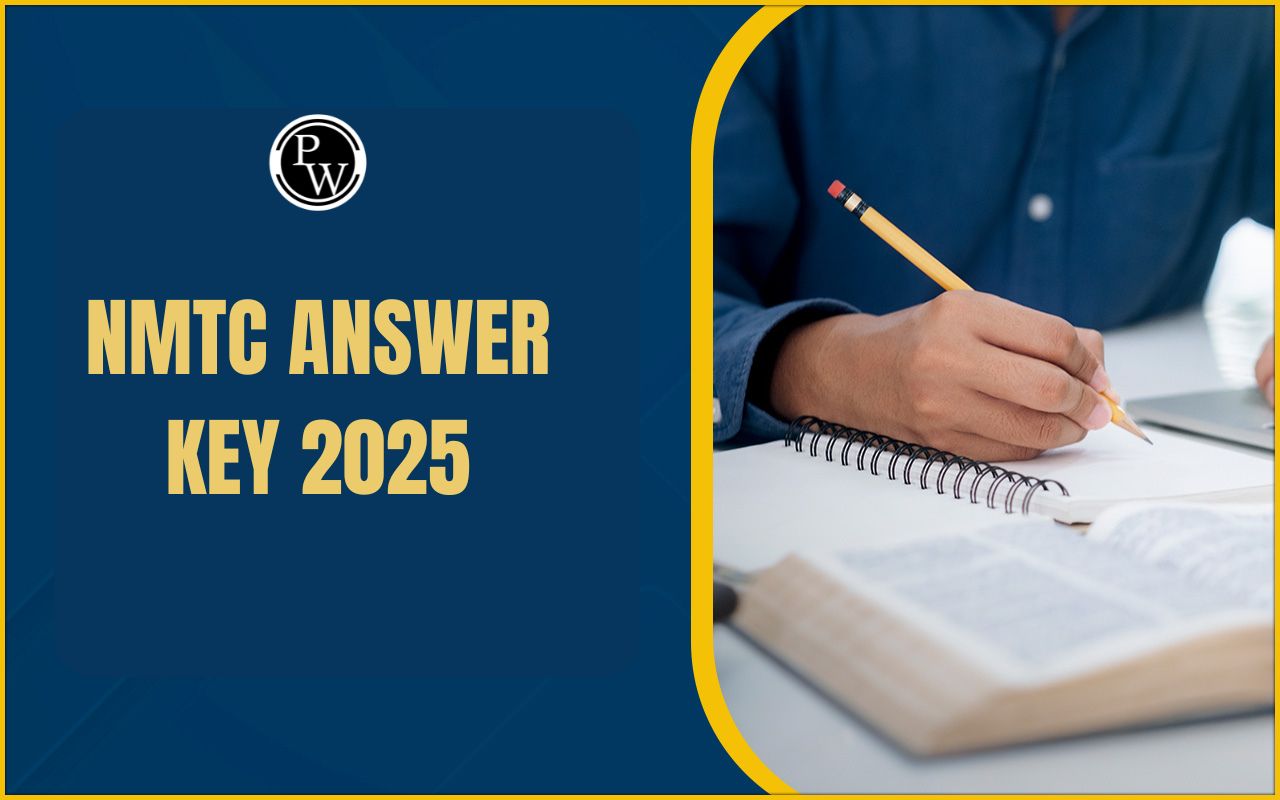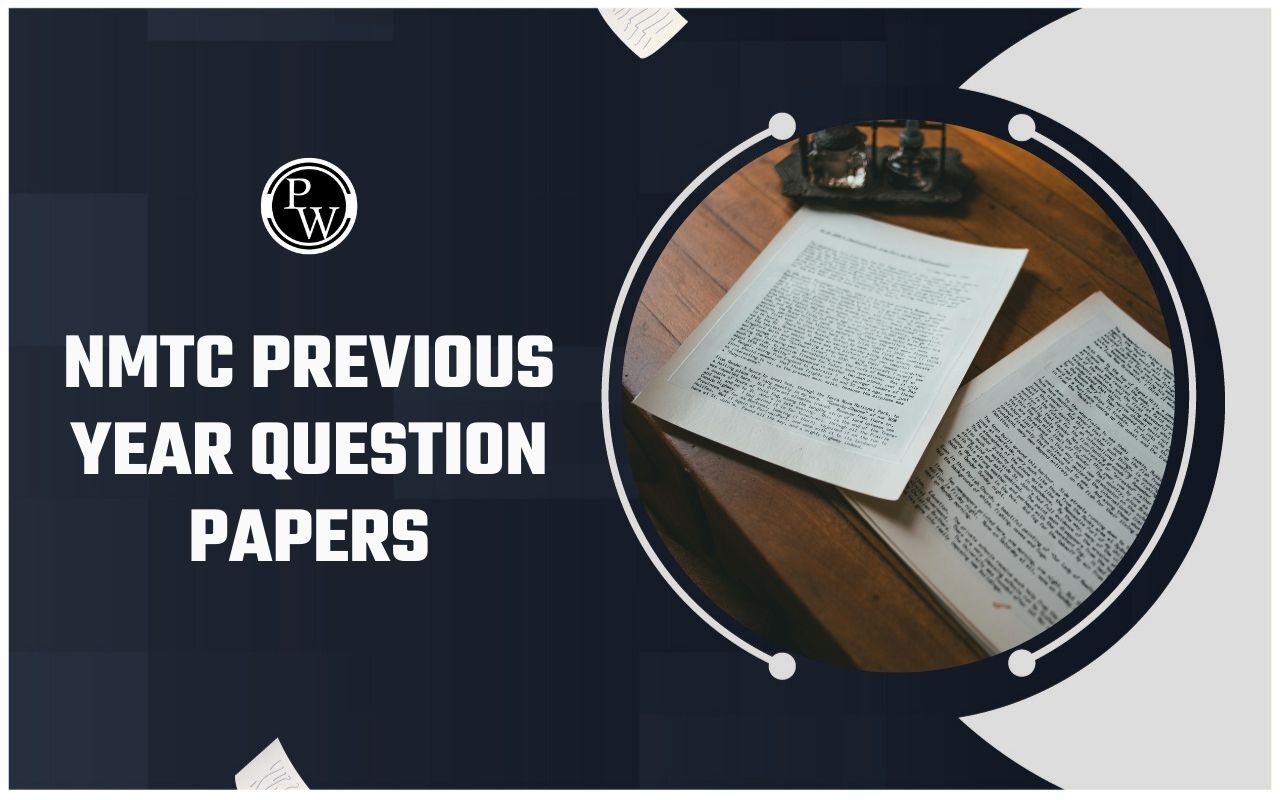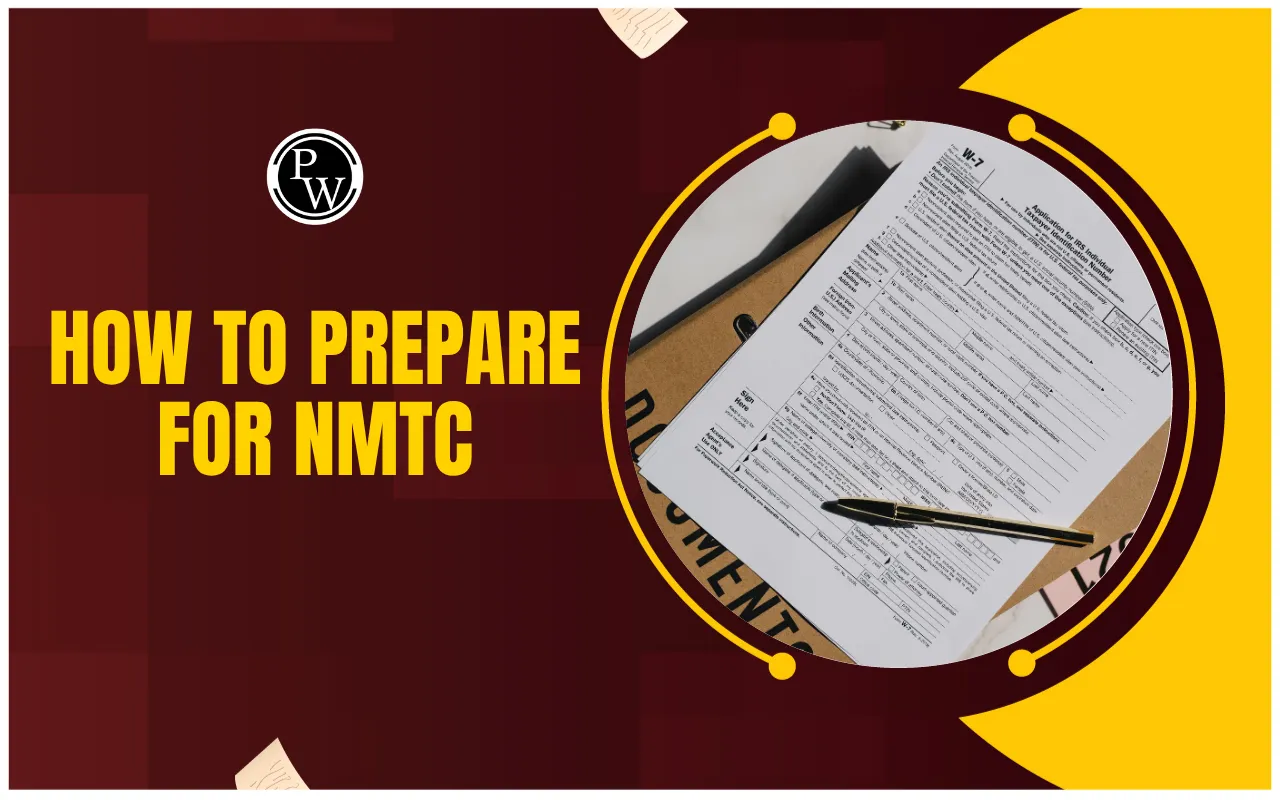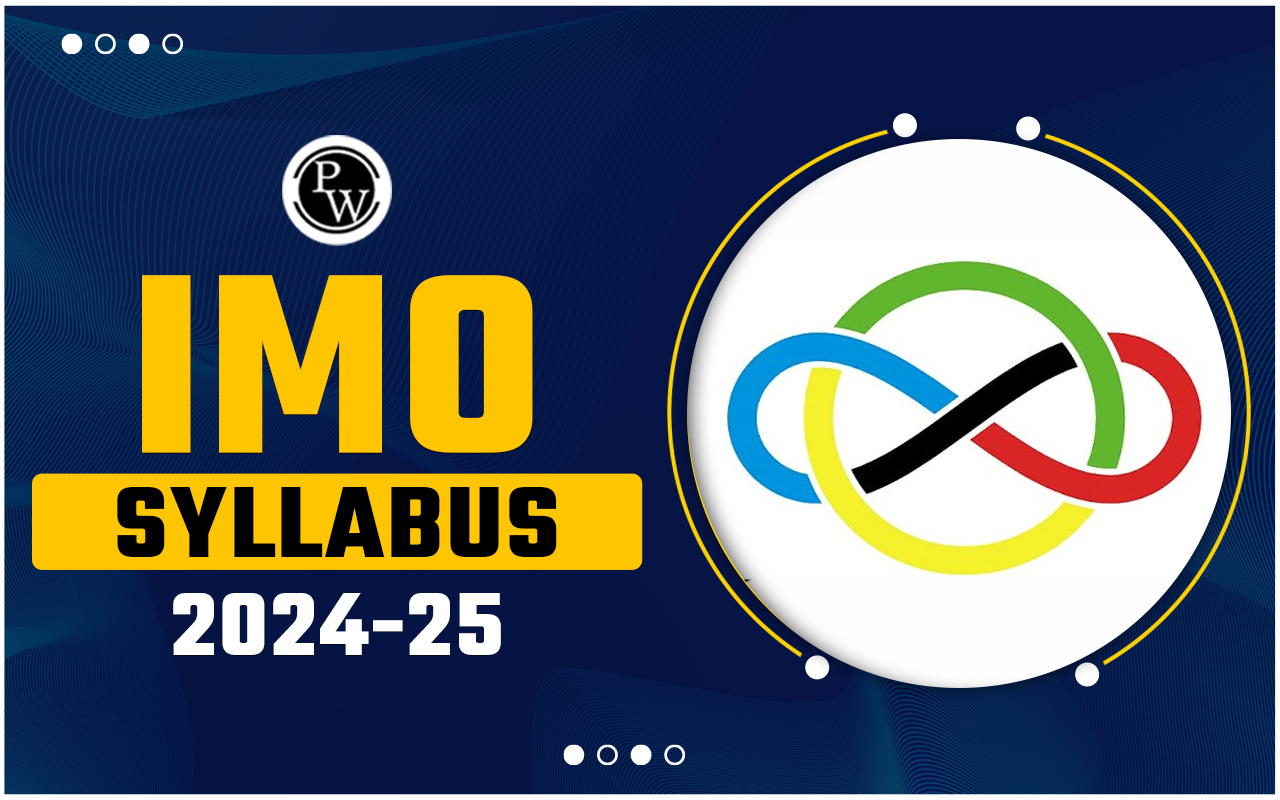
IMO Syllabus 2025: Algebra, Geometry, Trigonometry, Calculus, Number system, and other mathematical topics are covered in the IMO Syllabus 2025, which is designed to assess students' Mathematical knowledge from classes 1 to 12.
Depending on the student's class, the International Mathematical Olympiad Syllabus 2025 is separated into many sections. As students advance in the course, the degree of difficulty rises. In the below section of the blog, you can get the details of the IMO Syllabus and Exam Pattern.IMO Syllabus 2025
The goal of the IMO Syllabus 2025 is to provide young students with a way to assess and improve their mathematical academic abilities while also getting them ready for a competitive future. We have included detailed class-wise IMO Syllabus 2025 for the candidates.Approximately 60% of questions come from the current class syllabus and 40% from the previous class syllabus, except in the Achievers Section, which is entirely from the current syllabus.
International Mathematical Olympiad Syllabus 2025
This will help avoid any issues that may arise during the selection process. We will guide you through the IMO Exam Pattern, question types, and effective strategies. We have outlined below the essential details regarding IMO Syllabus 2025.| IMO Syllabus 2025 Overview | |
| Organization | Homi Bhabha Centre for Science Education (HBCSE) |
| Exam Name | International Mathematical Olympiad (IMO 2025) |
| IMO 2025 Exam Date | 10th to 20th July 2025 |
| Types of Questions | Multiple Choice Questions (MCQs) |
| Duration of IMO Exam | 1 Hour |
| Mode of Exam | Offline |
| Official Website | https://olympiads.hbcse.tifr.res.in/ |
IMO Syllabus Class 1
This exam consists of 35 questionscandidates have to answer within one hour. Only questions from the current class will be asked in the practice section. To prepare, students should study NCERT Class 1 textbooks. It is important to clear the IMO Olympiad syllabus at least one month before the exam. To view the IMO Syllabus Class 1 2025, see the table below.|
Section |
Topics |
No. of Questions |
Marks/Question |
Total marks |
|
Section 1 - Logical Reasoning |
Patterns, Odd One Out, Measuring Units, Geometrical Shapes, Spatial Understanding, Grouping, Analogy, Ranking Test, Problems based on Figures. |
10 |
1 |
10 |
|
Section 2 -Mathematical Reasoning |
Numerals, Number Names, Number Sense (2-digit numbers), Addition, Subtraction, Lengths, Weights and Comparisons, Time, Money, Geometrical Shapes and Solids. |
10 |
1 |
10 |
|
Section 3 -Everyday Mathematics |
Syllabus as per Section-2. |
10 |
1 |
10 |
|
Section 4 - Achievers Section |
Higher Order Thinking Questions - Syllabus as per Section-2 |
5 |
2 |
10 |
|
Total = 35 |
Total = 40 |
IMO Syllabus Class 2
For the Class 2 students we have tabulated below the IMO Syllabus Class 2|
Section |
Topics |
No. of Questions |
Marks/Question |
Total marks |
|
Section 1 - Logical Reasoning |
Patterns, Odd One Out, Measuring Units, Geometrical Shapes, Analogy, Ranking Test, Grouping of Figures, Embedded Figures, Coding-Decoding. |
10 |
1 |
10 |
|
Section 2 -Mathematical Reasoning |
Numerals, number names, Number Sense (3-digit Numbers), Computation Operations, Length, Weight, Capacity, Time, Temperature, Money, Lines, Shapes and Solids, Pictographs, Patterns. |
10 |
1 |
10 |
|
Section 3 -Everyday Mathematics |
Syllabus as per Section 2. |
10 |
1 |
10 |
|
Section 4 - Achievers Section |
Higher Order Thinking Questions- Syllabus as per Section 2. |
5 |
2 |
10 |
|
Total = 35 |
Total = 40 |
IMO Syllabus Class 3
In this IMO exam for Class 3 there will be 35 questions out of a total of 40 marks. One hour will be allotted for the exam. Students can mark previous year exam papers of class 3 and NCERT textbooks for preparation. 60% of the Level I questions are from the Class 3 syllabus and 40% from the Grade 2 Syllabus. Questions related to the Grade 3 syllabus are included in the Achievement section. We have tabulated below the IMO Syllabus Class 3.|
Section |
Topics |
No. of Questions |
Marks/Question |
Total marks |
|
Section 1 - Logical Reasoning |
Patterns, Analogy and Classification, Alphabet Test, Coding-Decoding, Ranking Test, Grouping of Figures and Figure Matrix, Mirror Images, Geometrical Shapes, Embedded Figures, Possible Combinations, Clock and Calendar. |
10 |
1 |
10 |
|
Section 2 -Mathematical Reasoning |
Numerals, Number Names, Number Sense (4-digit numbers), Computation Operations, Fractions, Length, Weight, Capacity, Temperature, Time, Money, Geometry, Data Handling. |
10 |
1 |
10 |
|
Section 3 -Everyday Mathematics |
Syllabus as per Section 2. |
10 |
1 |
10 |
|
Section 4 - Achievers Section |
Higher Order Thinking Questions - Syllabus as per Section – 2. |
5 |
2 |
10 |
|
Total = 35 |
Total = 40 |
IMO Syllabus Class 4
Get the details of the IMO Syllabus Class 4 for the students in Grade 4. The examination consists of 35 questions and carries 40 marks.|
Section |
Topics |
No. of Questions |
Marks/Question |
Total marks |
|
Section 1 - Logical Reasoning |
Patterns, Alphabet Test, Coding-Decoding, Ranking Test, Mirror Images, Geometrical Shapes and Solids, Embedded Figures, Direction Sense Test, Possible Combinations, Analogy and Classification, Clock and Calendar. |
10 |
1 |
10 |
|
Section 2 -Mathematical Reasoning |
Numerals, Number Names, Number Sense (more than 4-digit numbers), Computation Operations, Fractions, Length, Weight, Capacity, Time, Money, Geometry, Perimeter of Various Shapes, Symmetry, Conversions, Data Handling. |
10 |
1 |
10 |
|
Section 3 -Everyday Mathematics |
Syllabus as per Section 2. |
10 |
1 |
10 |
|
Section 4 - Achievers Section |
Higher Order Thinking Questions - Syllabus as per Section–2. |
5 |
2 |
10 |
|
Total = 35 |
Total = 40 |
IMO Syllabus Class 5
In this exam there are 50 questions carrying 60 marks in total. Students should always do problems from NCERT textbooks, previous exams, logic books to crack this exam IMO. 60% of Level I questions will be from Class 5 syllabus and 40% from Class 4 syllabus. At the pass stage, only Class 5 syllabus questions will be used. It is important to cover all important topics in the International Mathematics curriculum. The IMO Syllabus Class 5 is tabulated below.|
Section |
Topics |
No. of Questions |
Marks/Question |
Total marks |
|
Section 1 - Logical Reasoning |
Patterns, Analogy and Classification, Geometrical Shapes, Mirror and Water Images, Direction Sense Test, Ranking Test, Alphabet Test, Logical Sequence of Words, Puzzle Test, Coding-Decoding, Clock and Calendar. |
15 |
1 |
15 |
|
Section 2 -Mathematical Reasoning |
Numerals, Number Names, Number Sense (7 and 8 digit numbers), Computation Operations, Fractions and Decimals, Measurement of Length, Weight, Capacity, Time, Temperature and Money, Conversions, Geometrical Shapes and Solids, Angles, Perimeter of Various Shapes & Area of Rectangle and Square, Symmetry, Data Handling. |
20 |
1 |
20 |
|
Section 3 -Everyday Mathematics |
Syllabus as per Section-2. |
10 |
1 |
10 |
|
Section 4 - Achievers Section |
Higher Order Thinking Questions - Syllabus as per Section-2. |
5 |
3 |
15 |
|
Total = 50 |
Total = 60 |
IMO Syllabus Class 6
The IMO class 6 exam consists of 50 questions and carries a total of 60 marks. Questions will be asked from both classes (5th and 6th), so students should be prepared. Taking standardized tests can help students identify their strengths and where they should focus.|
Section |
Topics |
NO. OF Questions |
Marks/Question |
Total marks |
|
Section 1 - Logical Reasoning |
Verbal and Non-Verbal Reasoning. |
15 |
1 |
15 |
|
Section 2 -Mathematical Reasoning |
Knowing Our Numbers, Whole Numbers, Playing with Numbers, Basic Geometrical Ideas, Understanding Elementary Shapes, Integers, Fractions, Decimals, Data Handling, Mensuration, Algebra, Ratio and Proportion. |
20 |
1 |
20 |
|
Section 3 -Everyday Mathematics |
Syllabus as per Section - 2. |
10 |
1 |
10 |
|
Section 4 - Achievers Section |
Higher Order Thinking Questions - Syllabus as per Section – 2. |
5 |
3 |
15 |
|
Total = 50 |
Total = 60 |
IMO Syllabus Class 7
Students have one hour to answer all 50 questions in the exam of 60 marks. IMO Class 7 syllabus has 60% questions and class 6 syllabus has 40%. Finally, it is important to read NCERT books for both classes.|
Section |
Topics |
No. of Questions |
Marks/Question |
Total marks |
|
Section 1 - Logical Reasoning |
Verbal and Non-Verbal Reasoning |
15 |
1 |
15 |
|
Section 2 -Mathematical Reasoning |
Integers, Fractions and Decimals, Exponents and Powers, Algebraic Expressions, Simple Equations, Lines and Angles, Comparing Quantities, The Triangle and its Properties, Symmetry, Rational Numbers, Perimeter and Area, Data Handling, Visualising Solid Shapes. |
20 |
1 |
20 |
|
Section 3 -Everyday Mathematics |
Syllabus as per Section - 2. |
10 |
1 |
10 |
|
Section 4 - Achievers Section |
Higher Order Thinking Questions - Syllabus as per Section – 2. |
5 |
3 |
15 |
|
Total = 50 |
Total = 60 |
IMO Syllabus Class 8
50 questions are asked of 60 marks in International Mathematical Olympiad class 8. To prepare for IMO 2023, NCERT class 8 books including class 7 study books will include 60% of the questions in the sections first three, previous class projects 40%. in the below table you can get the details of the IMO Syllabus Class 8.|
Section |
Topics |
No. of Questions |
Marks/Question |
Total marks |
|
Section 1 - Logical Reasoning |
Verbal and Non-Verbal Reasoning. |
15 |
1 |
15 |
|
Section 2 -Mathematical Reasoning |
Rational Numbers, Squares and Square Roots, Cubes and Cube Roots, Exponents and Powers, Comparing Quantities, Algebraic Expressions, Linear Equations in One Variable, Understanding Quadrilaterals, Mensuration, Data Handling, Direct and Inverse Proportions, Factorisation, Introduction to Graphs. |
20 |
1 |
20 |
|
Section 3 -Everyday Mathematics |
Syllabus as per Section - 2. |
10 |
1 |
10 |
|
Section 4 - Achievers Section |
Higher Order Thinking Questions - Syllabus as per Section – 2. |
5 |
3 |
15 |
|
Total = 50 |
Total = 60 |
IMO Syllabus Class 9
In the International Mathematical Olympiad there are 50 questions of 60 marks. Students have one hour to answer as many detailed questions as they can to pass the IMO Exam 2025. Students are strongly encouraged to study using past exams and study NCERT Class 9 Mathematics books.|
Section |
Topics |
No. of Questions |
Marks/Question |
Total marks |
|
Section 1 - Logical Reasoning |
Verbal and Non-Verbal Reasoning. |
15 |
1 |
15 |
|
Section 2 -Mathematical Reasoning |
Number Systems, Polynomials, Coordinate Geometry, Linear Equations in Two Variables, Introduction to Euclid’s Geometry, Lines and Angles, Triangles, Quadrilaterals, Circles, Heron’s Formula, Surface Areas and Volumes, Statistics. |
20 |
1 |
20 |
|
Section 3 -Everyday Mathematics |
The syllabus of this section will be based on the syllabus of Mathematical Reasoning and Quantitative Aptitude. |
10 |
1 |
10 |
|
Section 4 - Achievers Section |
Higher Order Thinking Questions - Syllabus as per Section – 2. |
5 |
3 |
15 |
|
Total = 50 |
Total = 60 |
IMO Syllabus Class 10
This test consists of 50 questions divided into 4 sections. To prepare for International Mathematical Olympiad, students should use NCERT Class 10 Mathematics book for practice. Questions will come from current class (60%) and past class (40%). Section 4, popularly known as the Achievement Section, contains questions from the CBSE Class 10 syllabus.|
Section |
Topics |
No. of Questions |
Marks/Question |
Total marks |
|
Section 1 - Logical Reasoning |
Verbal and Non-Verbal Reasoning. |
15 |
1 |
15 |
|
Section 2 -Mathematical Reasoning |
Real Numbers, Polynomials, Pair of Linear Equations in Two Variables, Quadratic Equations, Arithmetic Progressions, Triangles, Coordinate Geometry, Introduction to Trigonometry, Some Applications of Trigonometry, Circles, Areas Related to Circles, Surface Areas and Volumes, Statistics, Probability. |
20 |
1 |
20 |
|
Section 3 -Everyday Mathematics |
The syllabus of this section will be based on the syllabus of Mathematical Reasoning and Quantitative Aptitude. |
10 |
1 |
10 |
|
Section 4 - Achievers Section |
Higher Order Thinking Questions - Syllabus as per Section – 2. |
5 |
3 |
15 |
|
Total = 50 |
Total = 60 |
IMO Syllabus Class 11
A student must answer 50 questions correctly for a total of 60 points to qualify for the International Mathematical Olympiad. 60% of questions will be from class 11 syllabus and 40% from class 10 syllabus. But in Achievement section questions will be asked from class 11 syllabus only. Here in the below table you can get the details of the IMO Syllabus Class 11.|
Section |
Topics |
No. of Questions |
Marks/Question |
Total marks |
|
Section 1 - Logical Reasoning |
Verbal and Non-Verbal Reasoning. |
15 |
1 |
15 |
|
Section 2 -Mathematical Reasoning |
Sets, Relations and Functions, Logarithms, Complex Numbers & Quadratic Equations, Linear Inequalities, Sequences and Series, Trigonometry, Straight Lines, Conic Sections, Permutations and Combinations, Binomial Theorem, Statistics, Limits and Derivatives, Probability, Introduction to 3-D Geometry. OR Numbers, Quantification, Numerical Applications, Sets, Relations and Functions, Sequences and Series, Permutations and Combinations, Mathematical Reasoning, Limits, Continuity and Differentiability, Probability, Descriptive Statistics, Basics of Financial Mathematics, Straight Lines, Circles.
|
20 |
1 |
20 |
|
Section 3 -Everyday Mathematics |
The syllabus of this section will be based on the syllabus of Quantitative Aptitude. |
10 |
1 |
10 |
|
Section 4 - Achievers Section |
Sets, Relations and Functions, Sequences and Series, Permutations and Combinations, Limits and Derivatives, Straight Lines, Circles, Parabola, Probability. |
5 |
3 |
15 |
|
Total = 50 |
Total = 60 |
IMO Syllabus Class 12
IMO class 12 exam will have 50 questions with total marks of 60. One hour long NCERT class 12 math books preparation tools for Olympiad exams. Students who are preparing for International Mathematical Olympiad (IMO) can check CBSE 12th Syllabus for more information.|
Section |
Topics |
No. of Questions |
Marks/Question |
Total marks |
|
Section 1 - Logical Reasoning |
Verbal and Non-Verbal Reasoning. |
15 |
1 |
15 |
|
Section 2 -Mathematical Reasoning |
Relations and Functions, Inverse Trigonometric Functions, Matrices and Determinants, Continuity and Differentiability, Application of Derivatives, Integrals, Application of Integrals, Differential Equations, Vector Algebra, Three Dimensional Geometry, Probability, Linear Programming.
OR Numbers, Quantification, Numerical Applications, Solutions of Simultaneous Linear Equations, Matrices, Determinants, Application of Derivatives, Integration, Application of Integrations, Differential Equations, Probability, Inferential Statistics, Index numbers, Time-based data, Financial Mathematics, Linear Programming. |
20 |
1 |
20 |
|
Section 3 -Everyday Mathematics |
The syllabus of this section will be based on the syllabus of Quantitative Aptitude. |
10 |
1 |
10 |
|
Section 4 - Achievers Section |
Matrices, Determinants, Application of Derivatives, Integration, Application of Integrations, Differential Equations, Linear Programming, Probability. |
5 |
3 |
15 |
|
Total = 50 |
Total = 60 |
IMO Exam Pattern 2025
The IMO Exam Pattern 2025 contains multiple-choice questions and problem-solving tasks that measure a student's knowledge of mathematical applications and logical reasoning. IMO Exam for Level 1 lasts 60 minutes and consists of 35 objective (multiple choice) questions. We tabulated below the International Mathematical Olympiad Exam Pattern 2025.| IMO Exam Pattern 2025 | ||||
| Class | Section | No. of Questions | Marks per Question | Total Marks |
| 1 to 4 | Logical Reasoning | 10 | 1 | 10 |
| Mathematical Reasoning | 10 | 1 | 10 | |
| Everyday Mathematics | 10 | 1 | 10 | |
| Achievers Section | 5 | 2 | 10 | |
| Grand Total | 35 | 40 | ||
| 5 to 10 | Logical Reasoning | 15 | 1 | 15 |
| Mathematical Reasoning | 20 | 1 | 20 | |
| Everyday Mathematics | 10 | 1 | 10 | |
| Achievers Section | 5 | 3 | 15 | |
| Grand Total | 50 | 60 | ||
| 11 to 12 | Logical Reasoning | 15 | 1 | 15 |
| Mathematical Reasoning /Applied Mathematics | 20 | 1 | 20 | |
| Everyday Mathematics | 10 | 1 | 10 | |
| Achievers Section | 5 | 3 | 15 | |
| Grand Total | 50 | 60 | ||
IMO Syllabus 2025 FAQs
Where can I get the IMO Syllabus 2025?
What is the Syllabus of IMO 2025?
What is the difficulty level of IMO 2025?
What is the IMO Exam Pattern 2025?
When is IMO 2025 scheduled for?

